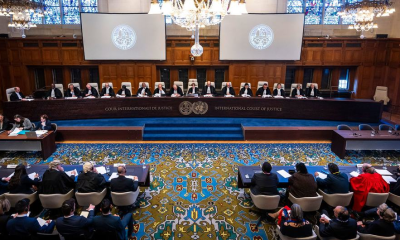Foreign News
Pandemic experts express concern over avian influenza spread to humans
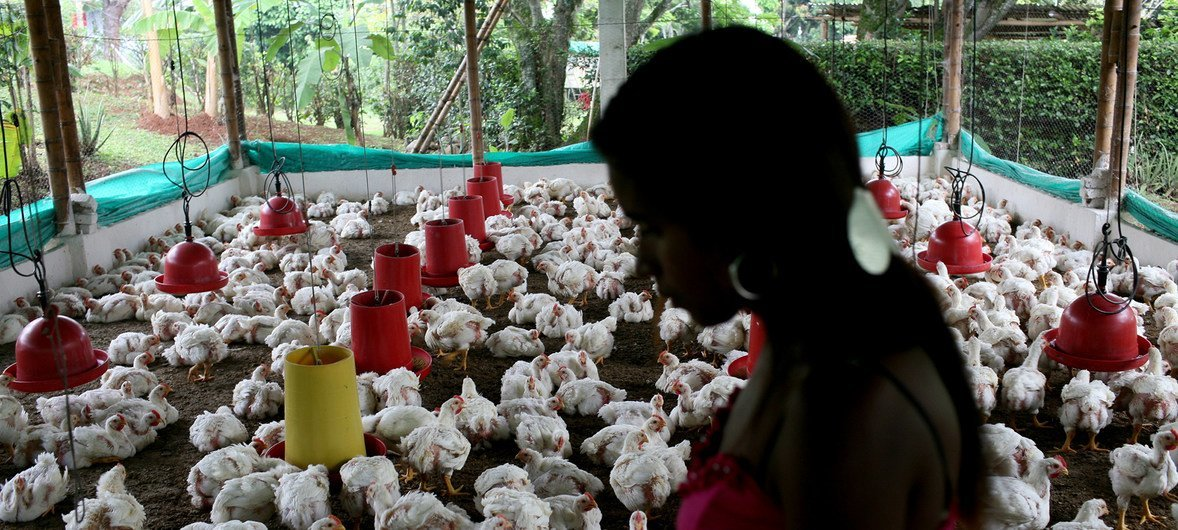
The ongoing global spread of “bird flu” infections to mammals including humans is a significant public health concern, senior UN medics said on Thursday, as they announced new measures to tackle airborne diseases.
Dr Jeremy Farrar, Chief Scientist at the World Health Organization (WHO), said that the avian influenza virus – which is also known as H5N1 – has had an “extremely high” mortality rate among the several hundred people known to have been infected with it to date.
To date, no human-to-human H5N1 transmission has been recorded.
“H5M1 is an influenza infection, predominantly started in poultry and ducks and has spread effectively over the course of the last one or two years to become a global zoonotic – animal – pandemic,” he said. “The great concern, of course, is that in doing so and infecting ducks and chickens – but now increasingly mammals – that that virus now evolves and develops the ability to infect humans. And then critically, the ability to go from human-to-human transmission.”
Commenting on an ongoing outbreak of H5N1 virus among dairy cows in the United States, the WHO senior official urged further close monitoring and investigation by public health authorities, “because it may evolve into transmitting in different ways”.

He added: “Do the milking structures of cows create aerosols? Is it the environment which they’re living in? Is it the transport system that is spreading this around the country? This is a huge concern and I think we have to … make sure that if H5N1 did come across to humans with human-to-human transmission, that we were in a position to immediately respond with access equitably to vaccines, therapeutics and diagnostics.”
The development comes as the WHO announced updated language to describe airborne pathogens, in a bid to increase international cooperation in the event of a new – and expected – global pandemic.
The initiative was originally sparked by the COVID-19 emergency and the recognition that there was a lack of commonly agreed terms among medics and scientists to describe how the coronavirus was transmitted, which increased the challenge of overcoming it, Dr Farrar explained.
To counter this, the WHO led consultations with four major public health agencies from Africa, China, Europe and the United States, before announcing agreement on a number of agreed new terms. These include “infectious respiratory particles” or “IRPs”, which should be used instead of “aerosols” and “droplets”, to avoid any confusion about the size of the particles involved.
Over and above the new terminology, the initiative cements the commitment of the international community to tackle ever “more complex and more frequent epidemics and pandemics”, Dr Farrar told journalists in Geneva. “It’s a hugely important first step. But next, we need to keep the disciplines, the experts together. We’re using the same terminology, the same language, and now we need to do the science that provides the evidence on tuberculosis, on COVID and other respiratory pathogens, so that we know how to control those infections better than we have done in the past.”
On the potential H5N1 public health risk, the WHO Chief Scientist cautioned that vaccine development was not “where we need to be”. Neither was it the case that regional offices and country offices and public health authorities around the world have the capability to diagnose H5N1, he noted.
(UN News)
Foreign News
Myanmar military announces temporary truce as quake death toll passes 3,000
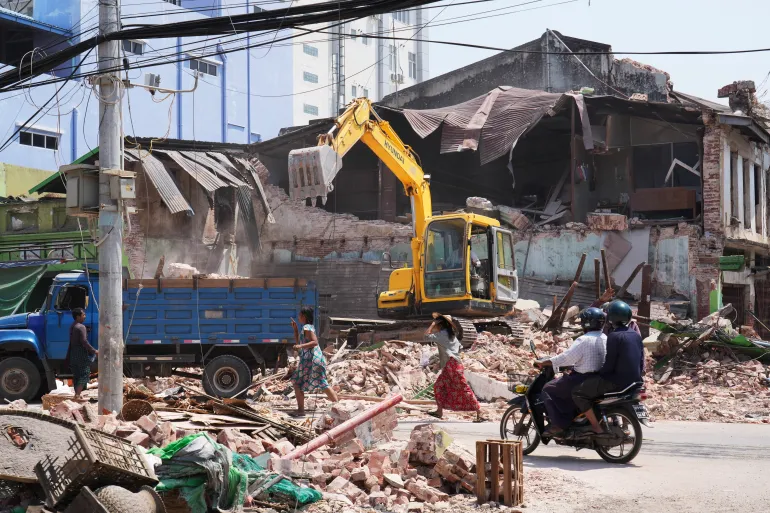
Myanmar’s governing military has declared a unilateral, temporary ceasefire in the country’s civil war to facilitate rescue efforts after last week’s powerful earthquake, as state television reported the death toll from the disaster had surpassed 3,000.
MRTV said that the truce would last from Wednesday until April 22 and was aimed at making quake relief efforts easier.
The announcement followed unilateral temporary ceasefires announced by armed resistance groups opposed to military rule. Those groups must refrain from attacking the state, or regrouping, or else the military will take “necessary” measures, the army said in a statement.
The death toll from the earthquake in Myanmar rose to 3,003, and more than 4,500 were injured, MRTV reported late on Wednesday.
In neighbouring Thailand, the death toll from the quake rose to 22, with hundreds of buildings damaged and 72 people missing.
In an incident underlining the challenge of delivering relief at a time of civil war in Myanmar, the military said its troops fired warning shots after a Chinese Red Cross convoy failed to pull over as it travelled in a conflict zone.
The Chinese Ministry of Foreign Affairs told the media that its rescue team and supplies were safe after the incident on Tuesday.
Guo Jiakun, a ministry spokesperson, said at a news conference that Beijing hoped “all factions and parties in Myanmar will prioritise earthquake relief efforts, ensuring the safety of rescue personnel and supplies from China and other countries”.
“It’s necessary to keep transportation routes for relief efforts open and unobstructed,” Guo said.

Military government spokesperson Zaw Min Tun said the Chinese Red Cross had not informed authorities it was in a conflict zone on Tuesday night, and a security team fired shots in the air after the convoy, which included local vehicles, failed to stop.
The military has struggled to run Myanmar following its coup against the elected civilian government of Nobel laureate Aung San Suu Kyi in 2021, reducing the economy and basic services, including healthcare, to tatters after civil war broke out.
The United Nations said more than 28 million people in the six regions were affected by the earthquake and that it put in place $12m in emergency funding for food, shelter, water, sanitation, mental health support and other services.
As hopes of finding more survivors were fading on Wednesday, rescuers pulled two men alive from the ruins of a hotel in Myanmar’s capital, Naypyidaw, and a third from a guesthouse in another city – five days after the magnitude 7.7 quake. But most teams were finding only bodies.
The rural parts of the hard-hit Sagaing region, mostly under the control of armed resistance groups fighting the military government, are among the most challenging for aid agencies to reach.
Earlier, Human Rights Watch urged the military government to allow unfettered access for humanitarian aid and lift curbs impeding aid agencies, saying donors should channel aid through independent groups rather than only the authorities.
“Myanmar’s junta cannot be trusted to respond to a disaster of this scale,” Bryony Lau, deputy Asia director at Human Rights Watch, said in a report. “Concerned governments and international agencies need to press the junta to allow full and immediate access to survivors, wherever they are.”
[Aljazeera]
Foreign News
Death sentence for three Americans over DR Congo coup attempt overturned
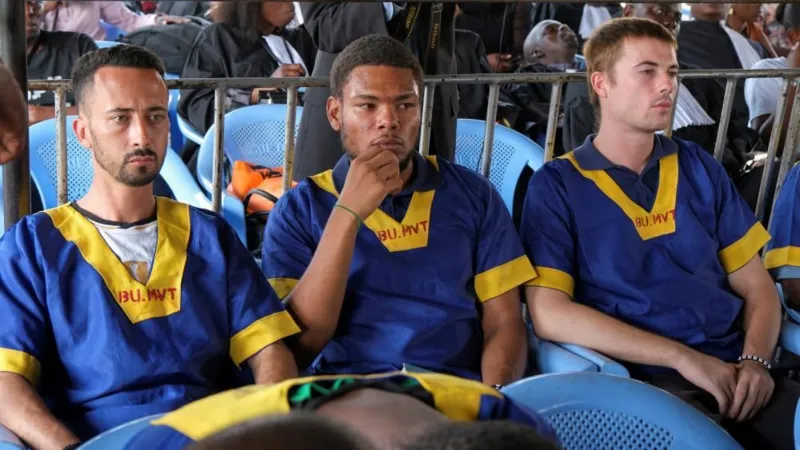
Three Americans convicted for their role in a failed coup in Democratic Republic of Congo last year have had their death sentences commuted to life imprisonment, the presidency has said.
They were among 37 people sentenced to death last September by a military court.
The three were accused of leading an attack on both the presidential palace and the home of an ally of President Félix Tshisekedi last May.
The overturning of the sentences comes ahead of a visit to DR Congo by the newly appointed US senior advisor for Africa, Massad Boulos.
Boulos, father-in-law to President Donald Trump’s daughter, Tiffany, is expected to arrive in Kinshasa on Thursday on a trip that will also take him to Rwanda, Kenya and Uganda.
The US has not declared the three Americans to be wrongfully jailed in DR Congo but the State Department said previously there have been talks between the countries over the matter.
The three were convicted of criminal conspiracy, terrorism and other charges, which they denied.
[BBC]
Foreign News
Netanyahu nominates new Israeli spy chief despite court order
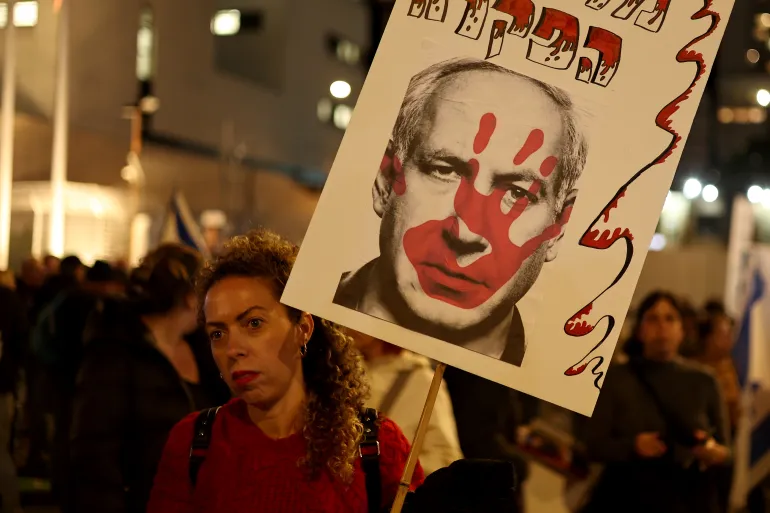
Israeli Prime Minister Benjamin Netanyahu has nominated a former Navy commander to head the country’s domestic security services, despite the courts having blocked his bid to fire the previous head of Shin Bet.
Netanyahu’s office announced on Monday that he had nominated Vice Admiral Eli Sharvit to lead the agency, which surveils attacks from abroad and at home, including by armed groups based in Palestine and Lebanon. However, a halt to the sacking of Ronen Bar as head of Shin Bet, ordered by the Supreme Court, remains in place.
[Aljazeera]
-

 Business2 days ago
Business2 days agoStrengthening SDG integration into provincial planning and development process
-

 News6 days ago
News6 days agoBid to include genocide allegation against Sri Lanka in Canada’s school curriculum thwarted
-

 Business1 day ago
Business1 day agoNew SL Sovereign Bonds win foreign investor confidence
-

 Sports3 days ago
Sports3 days agoTo play or not to play is Richmond’s decision
-

 Business1 day ago
Business1 day agoDaraz Sri Lanka ushers in the New Year with 4.4 Avurudu Wasi Pro Max – Sri Lanka’s biggest online Avurudu sale
-

 Latest News5 days ago
Latest News5 days agoIPL 2025: Rookies Ashwani and Rickelton lead Mumbai Indians to first win
-
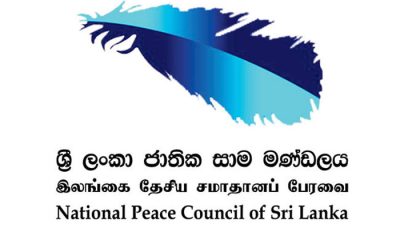
 News6 days ago
News6 days agoSL needs a comprehensive solution, not selective justice: NPC
-
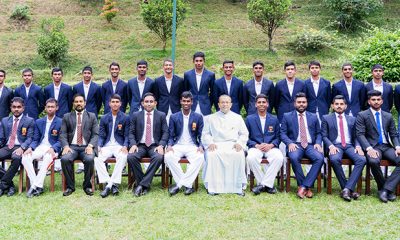
 Sports4 days ago
Sports4 days agoTrinity, St. Anthony’s out to end decade long victory drought




